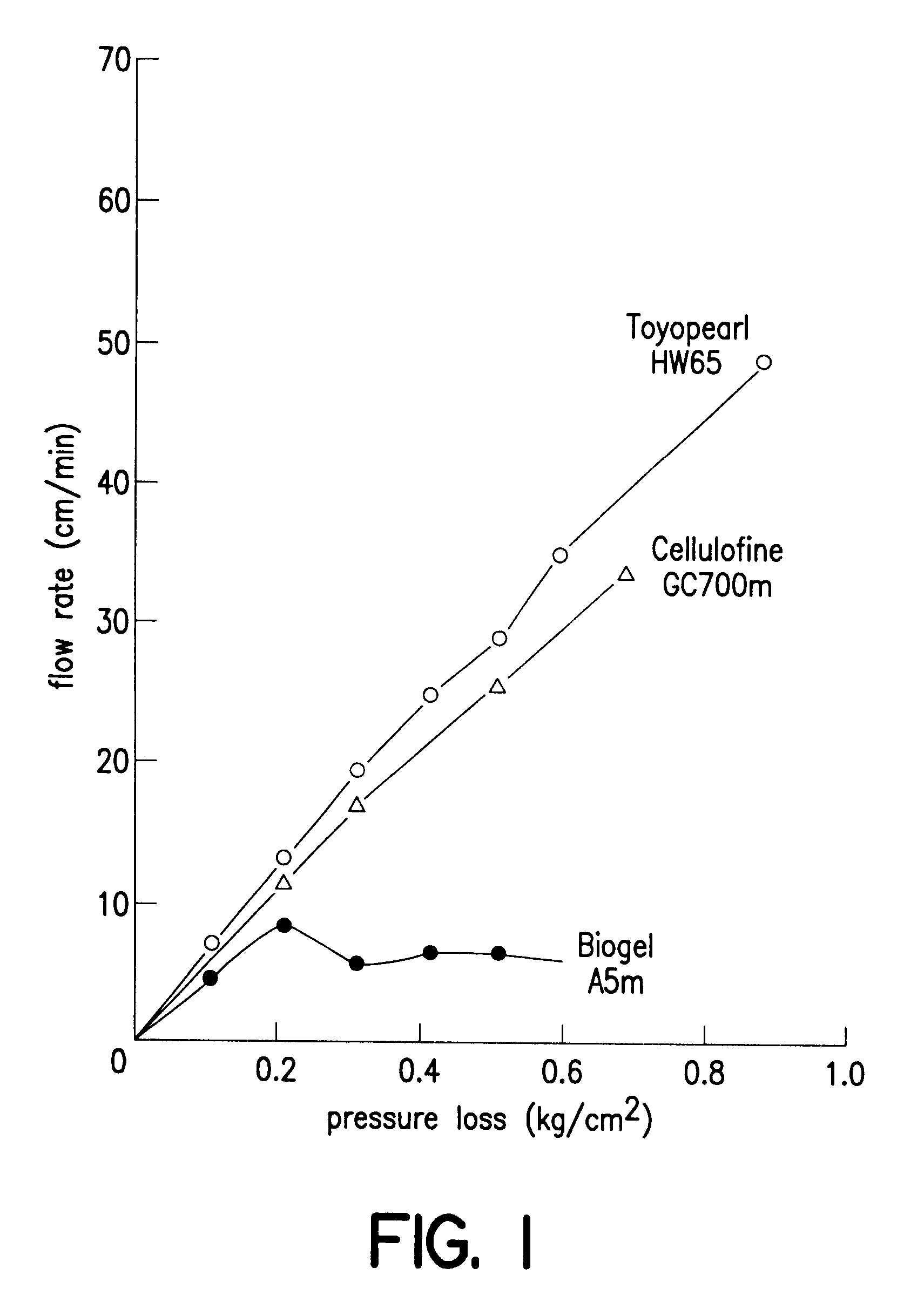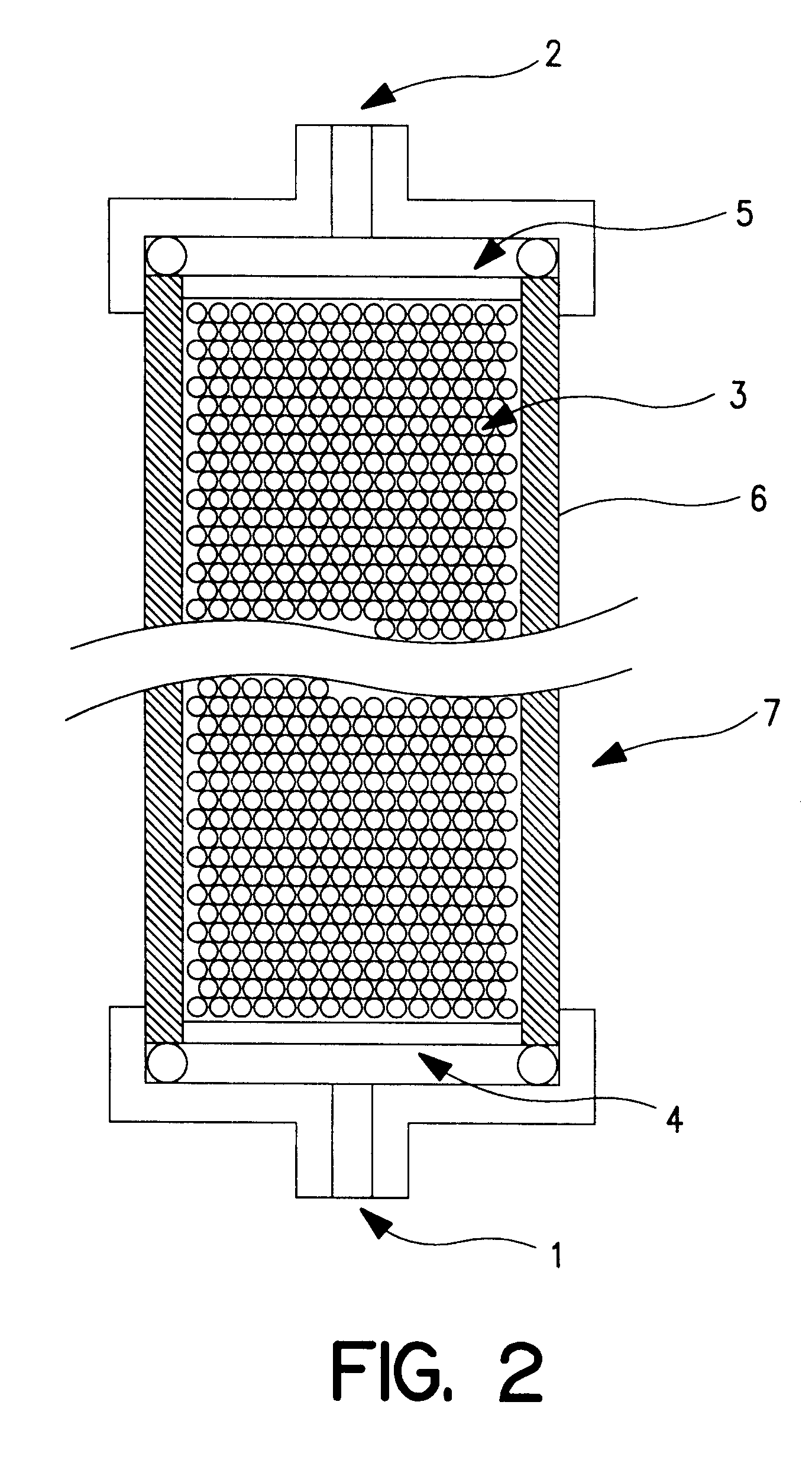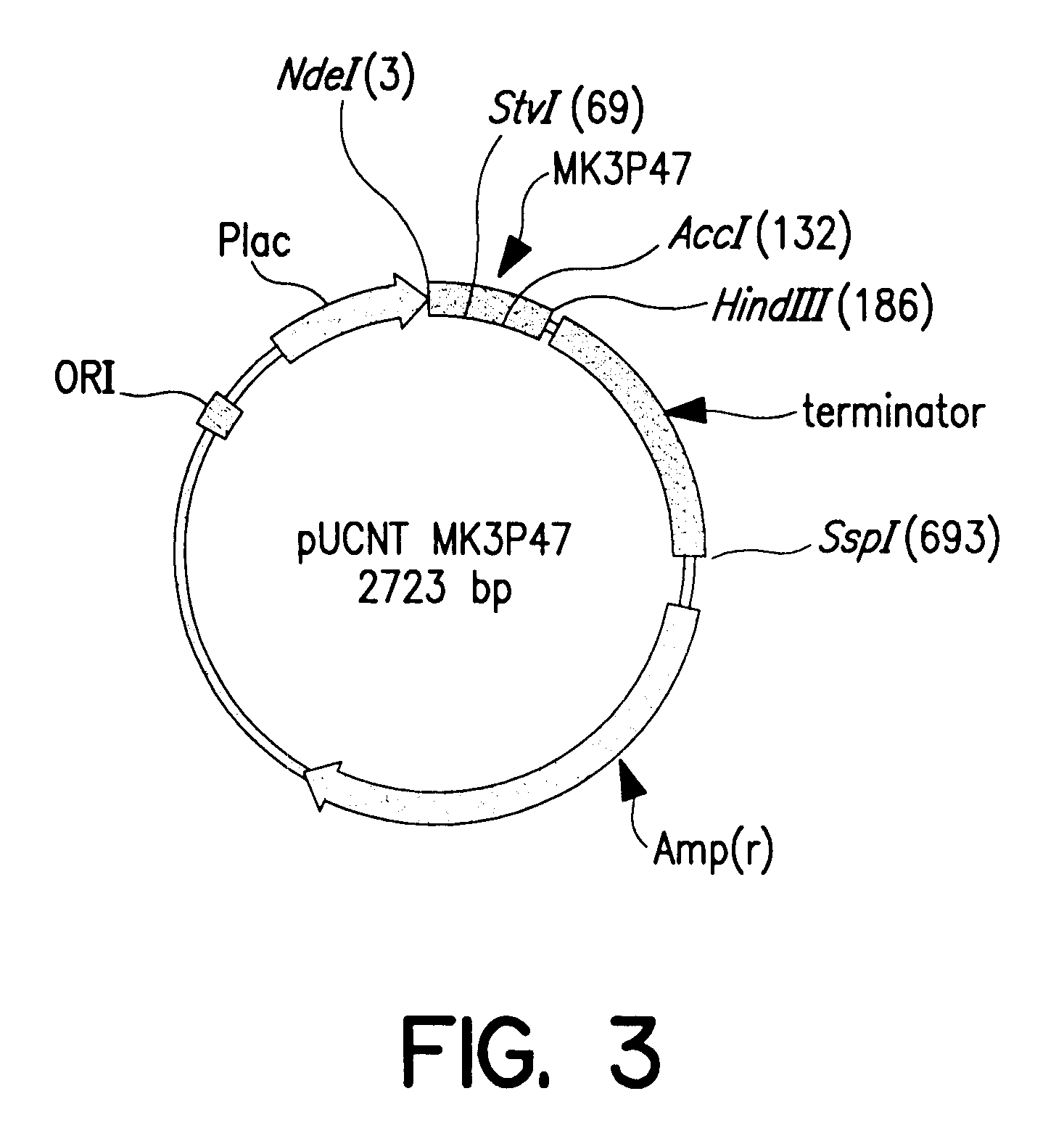Adsorbent for eliminating hepatitis C virus, adsorber, and adsorption method
a technology of adsorbent and hepatitis c virus, applied in the field of adsorbent for eliminating hepatitis c virus, adsorber, and adsorption method, can solve the problems of miserably low cure rate, recurrence, and therapy either proved ineffective or encountered, and the therapeutic response is much lower
- Summary
- Abstract
- Description
- Claims
- Application Information
AI Technical Summary
Benefits of technology
Problems solved by technology
Method used
Image
Examples
example 2
Immobilization of an IgG-Binding Protein (Protein G) on a Porous Carrier (GCL2000m)
Using protein G (Pharmacia LKB) in lieu of protein A, the procedure of Example 1 was otherwise repeated to provide GCL2000m-Protein G (3.2 mg / mL).
example 3
Immobilization of the IgG-Binding Domain of Protein G on a Porous Carrier (Sepharose 6B)
Synthesis of a Peptide
A peptide having the amino acid sequence of 57 residues in the C3 domain of protein G with cysteine added to the N-terminus was synthesized by the solid-phase method using Peptide Synthesizer Model 4170 (Pharmacia LKB).
Using 0.1 mmol of Fmoc-glutamine NovaSyn KA, a resin carrying the C-terminal glutamine, the deprotection reaction and condensation reaction were repeated in the direction toward the N-terminus for peptide chain extension in accordance with the input program of the above peptide synthesizer.
Thus, the cycle of removal of the .alpha.-amino-protecting group, i.e. 9-fluorenylmethyloxycarbonyl (Fmoc), from the amino acid with piperidine, washing with dimethylformamide (DMF), the condensation reaction using 2-(1H-benzotriazol-1-yl)-1,1,3,3-tetramethyluronium tetrafluoroborate and diisopropylethylamine, and subsequent washing with DMF was repeated.
The amino acids were...
example 4
Immobilization of an IgG-Binding Peptide (MK3P47) on a Porous Carrier (Kac)
Production of MK3P47 Peptide
A DNA coding for the MK3P47 peptide having the amino acid sequence shown in SEQ ID NO:2 was designed and synthesized so that it could be ligated to pUCNT Vector (Japanese Kokai Publication Hei-4-212692) by utilizing its Nde I restriction enzyme site for the 5'-end and its Hind III restriction enzyme site for the 3'-end. The nucleotide sequence of the synthesized DNA is shown in SEQ ID NO:3.
The DNA having the above sequence was ligated to pUCNT Vector cleaved with the restriction enzymes Nde I and Hind III (Takara Shuzo) in accordance with the manual of Takara Shuzo's DNA Ligation Kit Ver. 2 to construct a pUCNTMK3P47 vector (FIG. 3).
Then, using the known technique, this pUCNTMK3P47 vector DNA was subcloned in Escherichia coli HB101 (Irivitrogen) and a transformant was selected with resistance to the antibiotic ampicillin as an indicator.
From this transformant, the plasmid DNA was e...
PUM
| Property | Measurement | Unit |
|---|---|---|
| pore diameter | aaaaa | aaaaa |
| specific surface area | aaaaa | aaaaa |
| mean pore diameter | aaaaa | aaaaa |
Abstract
Description
Claims
Application Information
 Login to View More
Login to View More - R&D
- Intellectual Property
- Life Sciences
- Materials
- Tech Scout
- Unparalleled Data Quality
- Higher Quality Content
- 60% Fewer Hallucinations
Browse by: Latest US Patents, China's latest patents, Technical Efficacy Thesaurus, Application Domain, Technology Topic, Popular Technical Reports.
© 2025 PatSnap. All rights reserved.Legal|Privacy policy|Modern Slavery Act Transparency Statement|Sitemap|About US| Contact US: help@patsnap.com



